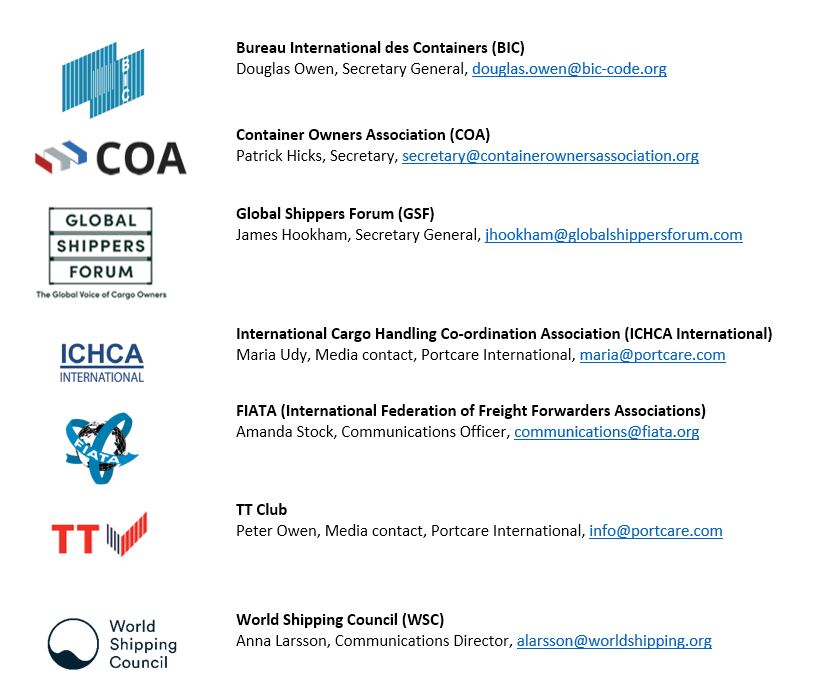Use of CTU Code boosts supply chain safety and savings, survey finds

The seven industry bodies dedicated to container safety, collaborating as the Cargo Integrity Group, highlight an independent study carried out by researchers at Italian University Politecnico di Torino into shipper and forwarder application of the CTU Code. The 2023 survey yielded encouraging signs of adoption and highlighted several convincing arguments – including financial benefits for its use.
The survey highlights multiple benefits to CTU Code users including:
- Improved safety, reputation and supply chain coordination
- Decreased cargo damage, environmental impact and operational inefficiencies
- Those using the CTU Code incurred no extra costs in employees, contractors, or vehicles
- Any increase in loading and waiting times were typically offset by CTU Code related efficiencies overall
- Annual costs and penalties reduced from €670,000 pre-implementation of the Code to €13,000 post-implementation
- Extra costs as a percentage of revenue reduced from 37% to 10%
In the words of the report’s authors (Bruno, et al.), “The application of the CTU Code to cargo loading and transportation processes can increase the safety level of transport activities, and also improve business processes and competitiveness. The results show that the use of the CTU Code provides an increase in safety with a drastic reduction of loading accidents and damage to goods, as well as important benefits in terms of costs, improved efficiency, corporate image and reduced environmental impact.”
The Cargo Integrity Group continues its efforts to underline the positive effects of the widespread use of guidance in the CTU Code, which is the Code of Practice for Packing of Cargo Transport Units jointly published by the International Maritime Organisation (IMO), the International Labour Organization (ILO) and the United Nations Economic Commission for Europe (UNECE)¹.
The Group is dedicated to improving the safety, security and environmental performance throughout the logistics supply chain. In particular, it is concerned to promote safe methods to those responsible for the packing of cargoes in containers, securing them and accurately declaring them.
Welcoming the Politecnico survey, the CEO of ICHCA, one of the Group’s founding associations, Richard Steele said, “As far as we are aware, this is the first example of publicly available empirical evidence about the use of the CTU Code made by forwarders, shippers and others responsible for safe packing. Notwithstanding the regional focus of this particular survey, we believe the results to be genuinely encouraging. They show that good operational management, efficiency and safety are partners, not opposites.”
To facilitate a greater degree of understanding and wider use of what is a lengthy and complex document, the Group has published a ‘Quick Guide’ to the CTU Code, together with an editable and saveable Checklist of actions and responsibilities for the guidance of those undertaking the packing of cargoes in containers. These materials are now available in all six of the United Nations’ official languages, as well as Italian².
The full results of the Politecnico di Torino’s survey can be accessed here https://www.sciencedirect.com/science/article/pii/S2590198223000738?via%3Dihub
Footnotes:
¹http://www.imo.org/en/OurWork/Safety/Cargoes/CargoSecuring/Documents/1497.pdf
² Arabic, Chinese, English, French, Russian and Spanish. Downloadable HERE
ENDS
-









